Board games aren’t just Monopoly and Scrabble anymore.
Today, there are thousands of boardgames covering every topic from birdwatching to queuing for food in 1980s Poland and – of course – space.
With a wealth of space and astronomy boardgames out there, players can learn about the planets, work alongside friends and family to explore the Solar System, or compete against them in a bid to gain control of the Galaxy.
No matter what your experience with boardgames or card games, there’s a space-themed game to suit you.
Here is a run-down of what we think are the best space-themed boardgames available today, from the beginner-friendly to those that will challenge the most expert of boardgamers.
8 of the best space boardgames
1
Astronomy Fluxx
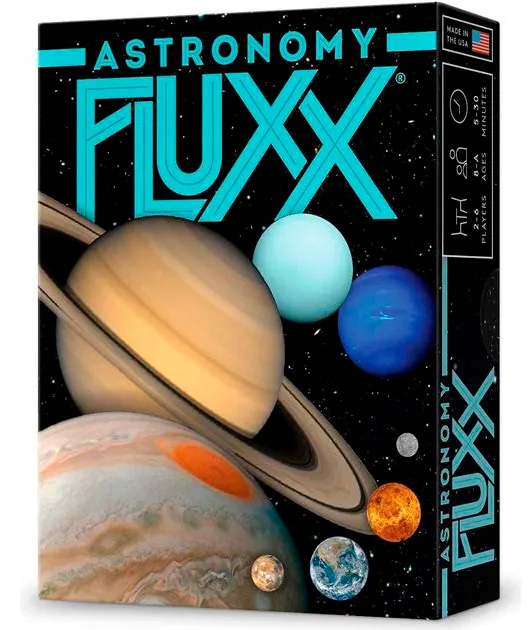
- Complexity: 3/10
- Players: 2 to 6
- Age: 8
- Game type: Family card game
Astronomy Fluxx is a space-based card game where the cards you play determine the rules of the game. In round one, players can draw and play one card, but these will soon change the game’s mechanics: how many cards you draw in relative to what you need to do to win the game.
The Astronomy edition of Fluxx features cards with NASA photographs of the planets, nebulae and galaxies, and features additional information and challenges to help players learn about the Universe.
- Buy now from Travelling Man.
2
The Crew – The Quest for Planet 9
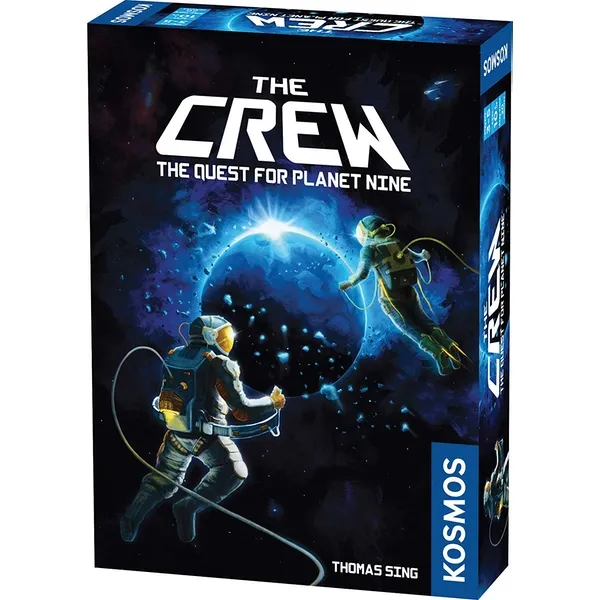
- Complexity: 4/10
- Players: 2 to 5
- Age: 10
- Game type: Co-operative trick-taking
The Crew is a co-operative, trick-taking card game with an added storytelling twist. Players journey through the Solar System towards Planet 9 over 50 missions. Each of these missions is chronicled in a ‘logbook’, featuring a short narrative paragraph, as well as giving a unique challenge to complete that round. For example, each of the players has to win a trick containing a certain card, or one player can’t win any tricks at all.
While the rules of the game are simple to grasp, playing can be mind-bendingly challenging. Players are only allowed to reveal one card in their hand a round (unless the mission says a meteor shower has knocked out your radio!) and so the game becomes an exercise in working out what your team mates might have, then puzzling out which of your own cards will let you achieve your goal. Once you’ve accomplished all 50 missions, count up how many attempts it took and calculate your final score (ours was 101 – let us know if you beat us!)
- Buy now from Magic Madhouse or Thirsty Meeples.
3
Rocketmen
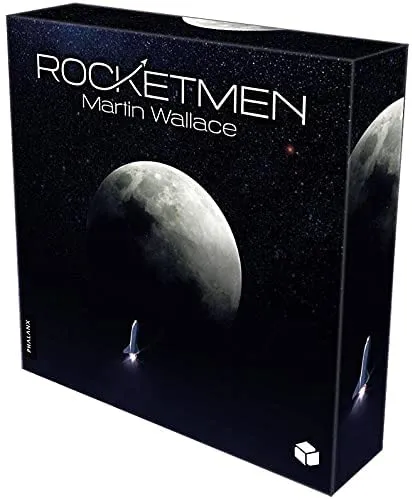
- Complexity: 5/10
- Players: 1 to 4
- Age: 14
- Game type: Deckbuilder
Explore the inner Solar System in Rocketmen, a deck-building game. Players set themselves a goal – such as sending a rocket to the Moon or building a spaceport around Mars. They then buy cards with bigger rockets to make the journey and develop technologies to grant special abilities, in order to reach the set destination.
- Buy now from Athena Games or Zatu Games.
4
Race for the Galaxy
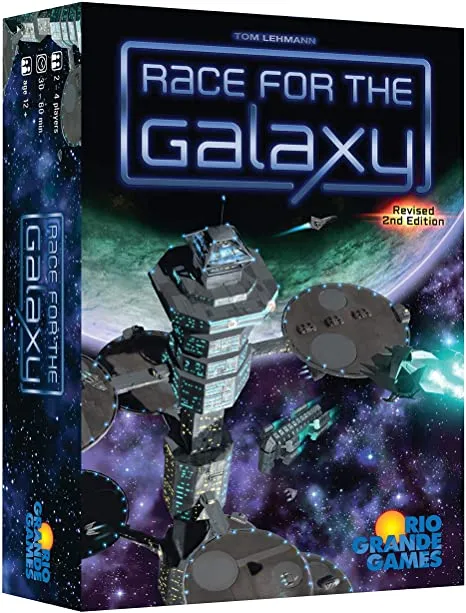
- Complexity: 6/10
- Players: 2 to 4
- Age: 12
- Game type: Tableaux builder
Settle new worlds and develop technologies to build your economy in this civilisation-building card game. In Race For The Galaxy, cards grant abilities that can help players generate points, get more cards or play other cards. But they also act as currency, as in order to play one card players must first discard some from their hand, so you have to think tactically about which you will keep and which to throw away.
- Buy now from Amazon, Element Games or Games Lore.
5
Intrepid
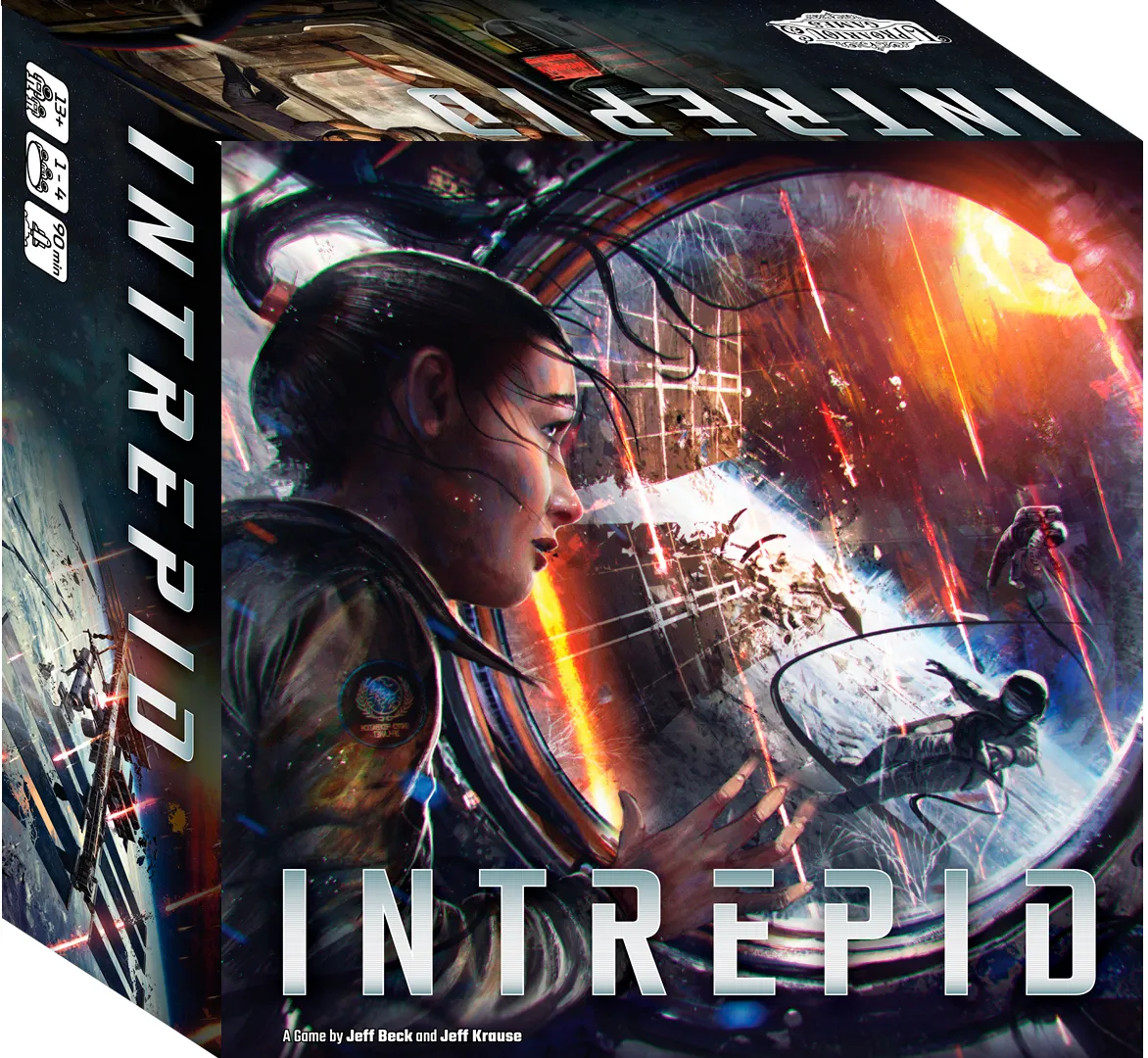
- Complexity: 7/10
- Players: 1 to 4
- Age: 13
- Game type: Dice survival game
The International Space Station is in trouble. But don’t worry, you can save it in this co-operative dice-based board game. Players play as astronauts from different nations working together to keep the station powered, the life support on and the astronauts fed while dealing with disasters that befall the station. To do this, they roll dice and then use them to activate certain abilities. However, the game is asymmetric, meaning each nationality has different abilities that use the dice in different ways, for example one can only activate certain abilities by using even numbered dice, while others require odd dice.
The difficulty level of the game can be tailored – each of the nations has a complexity rating and the disasters can be made more or less disastrous as desired – meaning the game can be enjoyed by new gamers as well as more experienced ones, while the varied nationalities increase replay-ability and keep the game fresh.
- Buy now from Zatu Games, Thirsty Meeples.
6
Terraforming Mars
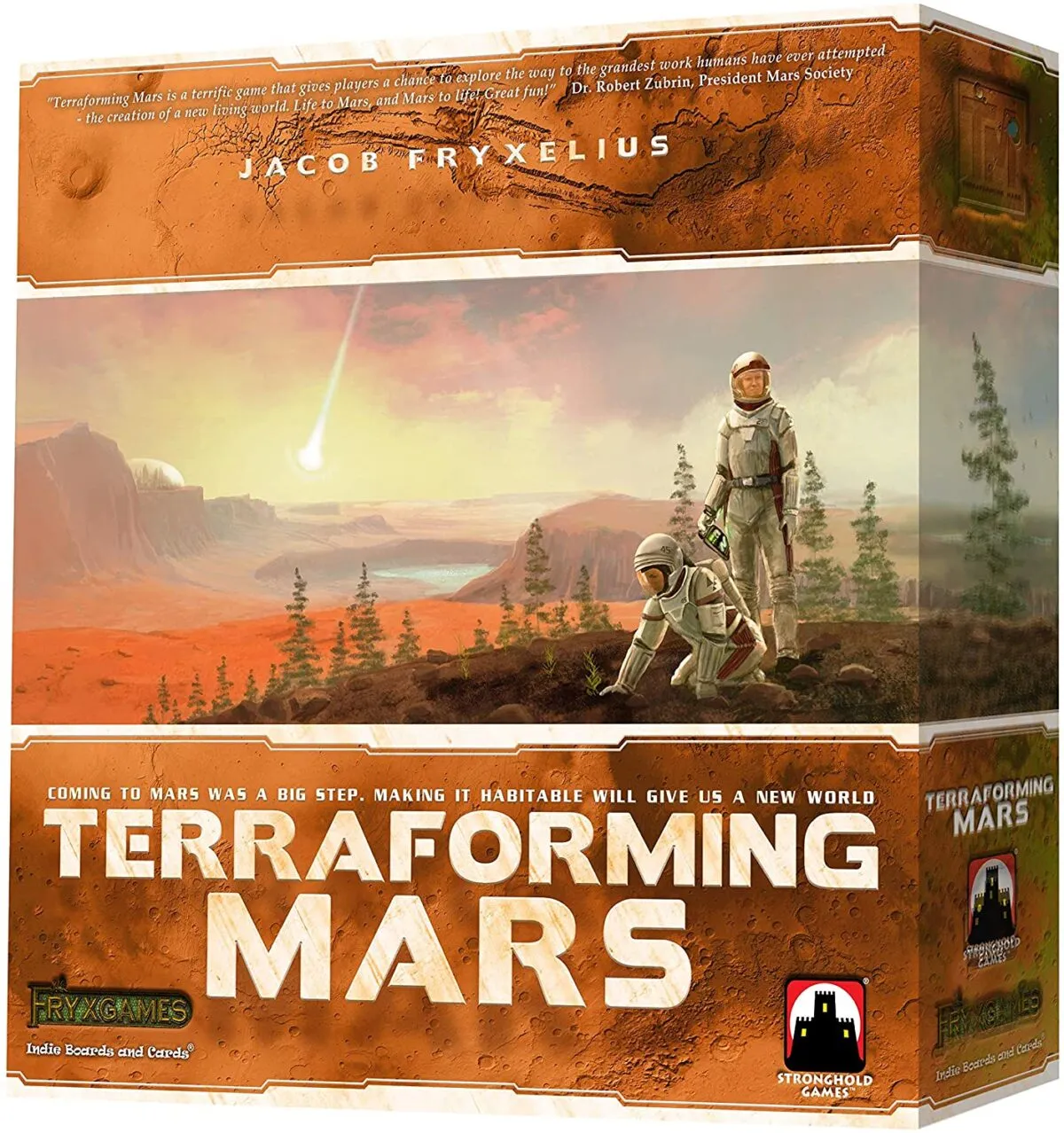
- Complexity: 8/10
- Players: 1 to 5
- Age: 12
- Game type: Card driven resource management
Play as giant corporations racing each other to transform the Red Planet into a green one by increasing the temperature, creating oceans and growing forests to pump out oxygen into the atmosphere.
Gameplay is driven by gathering resources by playing cards, each featuring descriptions and artwork based on what would actually be needed to terraform Mars, e.g. throwing a comet at the planet to create oceans and raise the temperature. These then allow you to put down forests, oceans and cities across the Martian landscape. Once you’ve fully terraformed Mars, see who transformed the planet the best and accumulated the most terraforming points to win the game.
7
Twilight Imperium
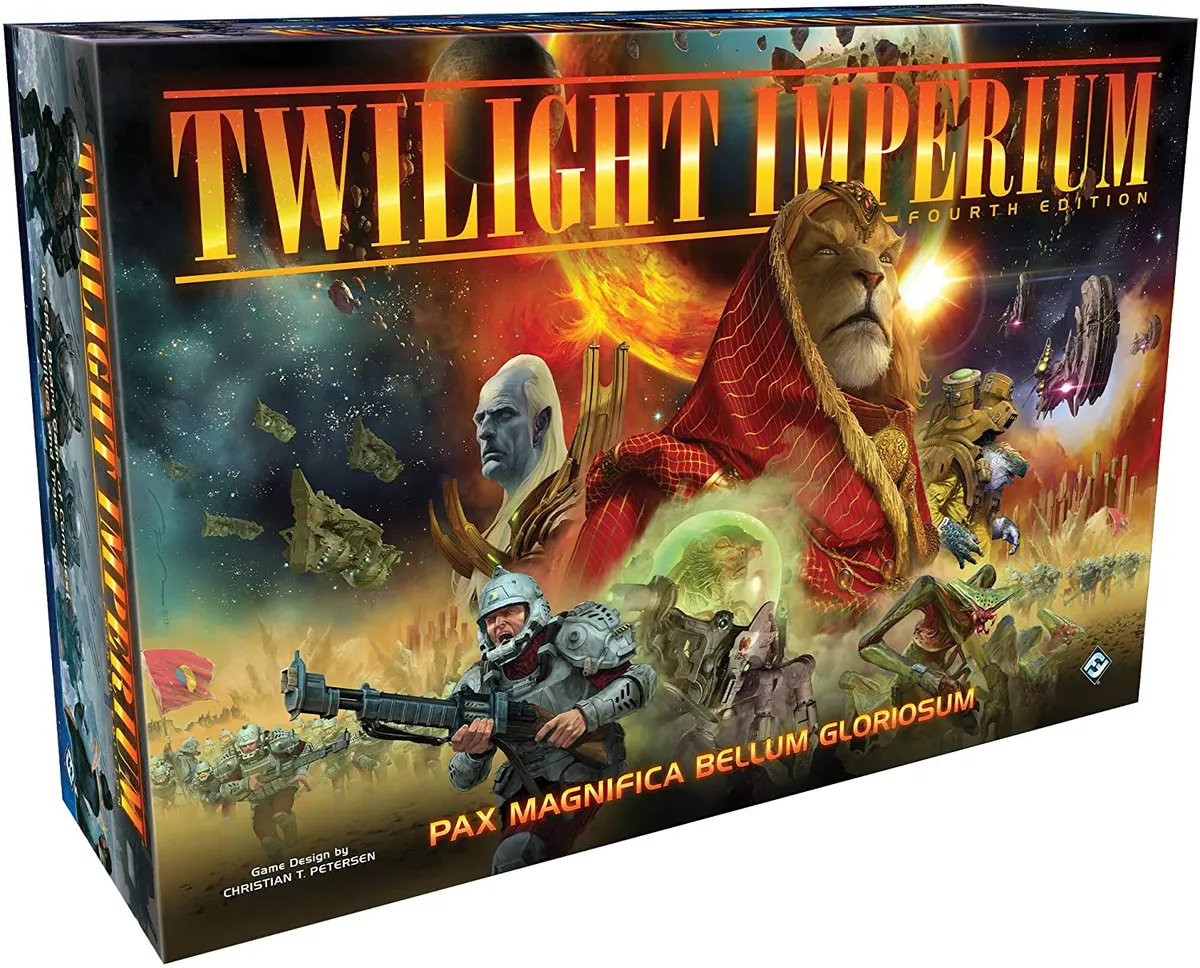
- Complexity: 9/10
- Players: 3 to 6
- Age: 14
- Game type: Area control
Build an intergalactic empire in a game of space combat, diplomacy and technological prowess.
There are a dozen different factions to choose from and you can adapt play according to your style: some civilisations allow for a peaceful play style based on trade and diplomacy, while others are centred around waging epic space battles against your fellow players.
The game is definitely one for more seasoned boardgamers. While the complicated rules make for a stimulating and challenging experience, you’ll often find yourself reaching for the rulebook even after several games. And you might want to bring snacks, as games can regularly end up running for 8 hours.
- Buy now from Total Cards, Red Rock Games.
8
High Frontier 4 All
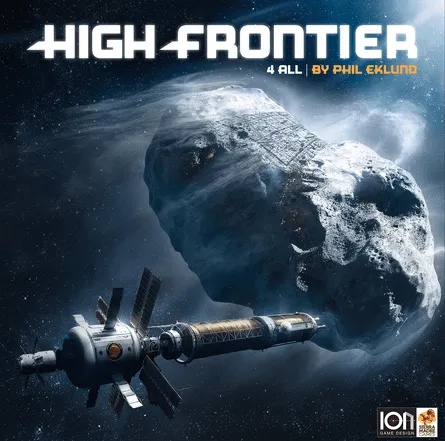
- Complexity: 11/10
- Players: 1 to 5
- Age: 14
- Game type: Exploration
If you’re looking for a real boardgaming challenge, High Frontier is it. Players take on the role of space agencies exploring and landing on the bodies of the Solar System. However, the mechanics of the game are closely based on real rocket science (there’s even an appendix explaining the science in more detail). To reach a destination, players have to manage fuel consumption, navigate radiation belts and calculate the best flight path. The last of these is based on actual orbital mechanics, resulting in one of the most beautifully complicated boards in gaming.
Players can choose to go for lower points by staging missions near to Earth, or shoot for a mission to the Kuiper Belt for a big score. The choice is yours.
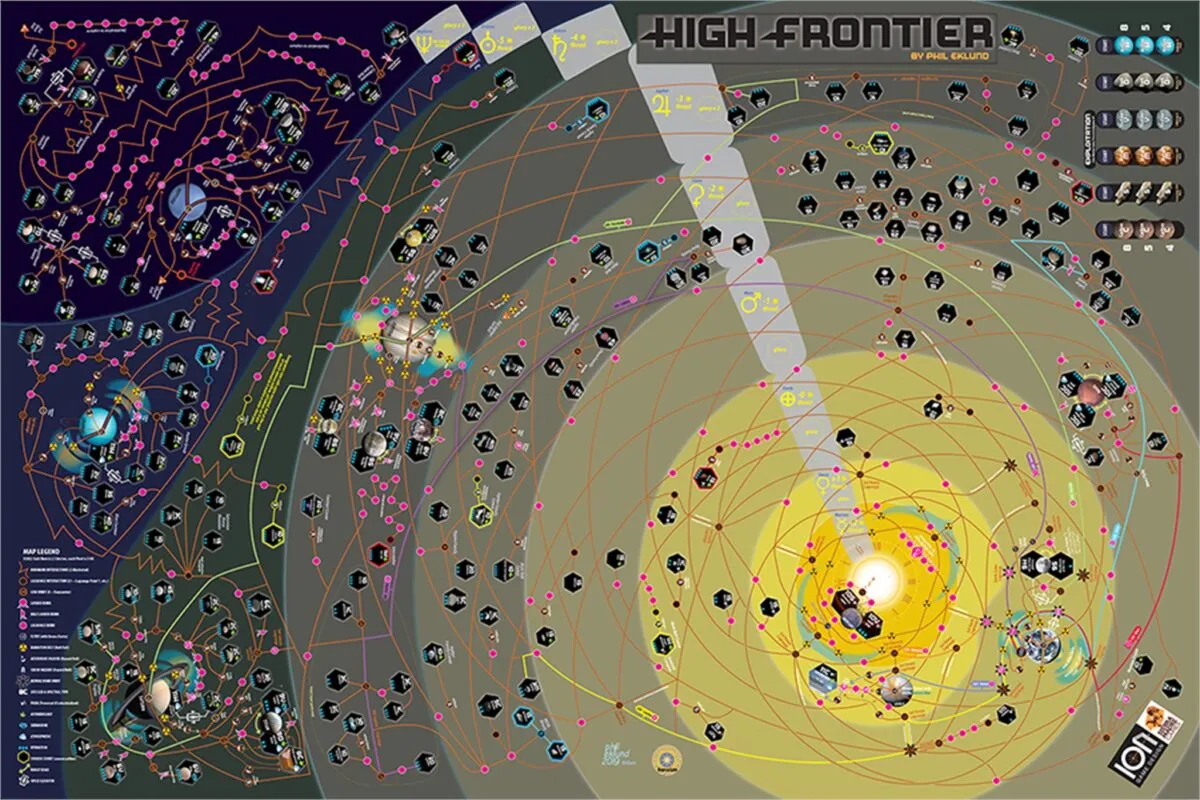
- Buy now from Chaos Cards.
